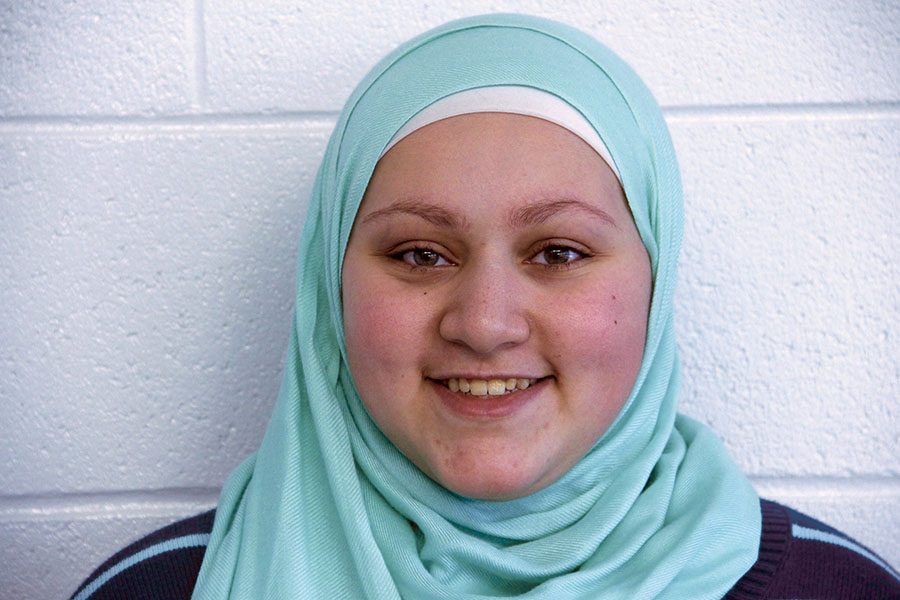Dalal Essa
Senior Dalal Essa relates her past living in Kuwait and her family's experiences with immigration.
Senior Dalal Essa was born in the Wichita, Kansas, and lived in the United States for four years. Afterward, she moved to her parent’s home country, Kuwait, and lived there for nine and half years. She said although she was not born in Kuwait, the majority of her childhood memories are deeply rooted there.
“Nine and a half years, when you think about it, isn’t that much, but the memories that we created in those years are what makes me feel very strongly connected to Kuwait,” Essa said. “I was raised there. My family and friends lived close by, and my siblings and I matured over the years together.”
Essa said her family is originally from Palestine but her grandparents, who were born in Palestine, moved to Kuwait before her parents were born to avoid the Israeli-Palestinian conflict. Her parents were both born and raised in Kuwait, and from there, they moved between Kuwait and Jordan, where her grandparents live now.
Essa said her dad originally immigrated from Kuwait to the U.S. to attend college. She said her parents married in Jordan and returned to the United States when they decided to have family.
Some of her favorites memories of Kuwait, Essa said, were traveling with family each summer.
“We were close by to my grandparents house in Jordan and we could always travel there during the summer and just hang out with the rest of my family,” Essa said.
Essa said she returned to the U.S. before her freshman year of high school. She said she immediately noticed how different the school atmosphere was from that of Kuwait. Essa said in Kuwait, she attended a British private school, which differed greatly from American public school.
“[At British public school,] we weren’t allowed to chew gum, we weren’t allowed to have our phones with us, our shoes had to be black, our socks had to be a certain [length],” Essa said. “Everything was tailored to exactly how they wanted it to be.”
Essa said the differences she noticed between the U.S. and Kuwait during her freshmen year were not limited to a change in geography. She said that same year, she had also decided to start wearing a headscarf every day. She said although students accepted her and her religion, Islam, she was often subject of stares and questions about her attire.
“In the Middle East, it’s totally normal for a woman to be wearing a scarf, but here, everybody is [surprised],” Essa said.
As a first generation U.S. citizen, Essa said she understands the importance of staying politically active. She said because her older sister is a political science major in college and her dad was active in politics in college, she is always up-to-date with political news.
Essa said her mom is an interpreter for refugees, and the news of President Donald Trump’s travel ban on several predominantly Muslim countries strongly affected her family.
“I know some people who are refugees that I have become close with and for that to just happen out of nowhere was a complete shock,” Essa said. “You would think that as the United States we preach freedom for everyone and we preach equality for all but Muslims nowadays are being targeted.”
Essa said her religion, Islam, preaches peace and believes it is unacceptable that extremists use her religion as an excuse to harm others. She said it is important to remember that Muslim people are still human and in almost any situation, there will be extremists that make excuses for their actions.
“We are not the enemies,” Essa said. “There are so many people out there that think that all Muslims are terrorists and all Muslims’ goals are to kill everyone when, really, my goal as a Muslim is to wake up in the morning, go to school, ace some tests and then go back home.”

